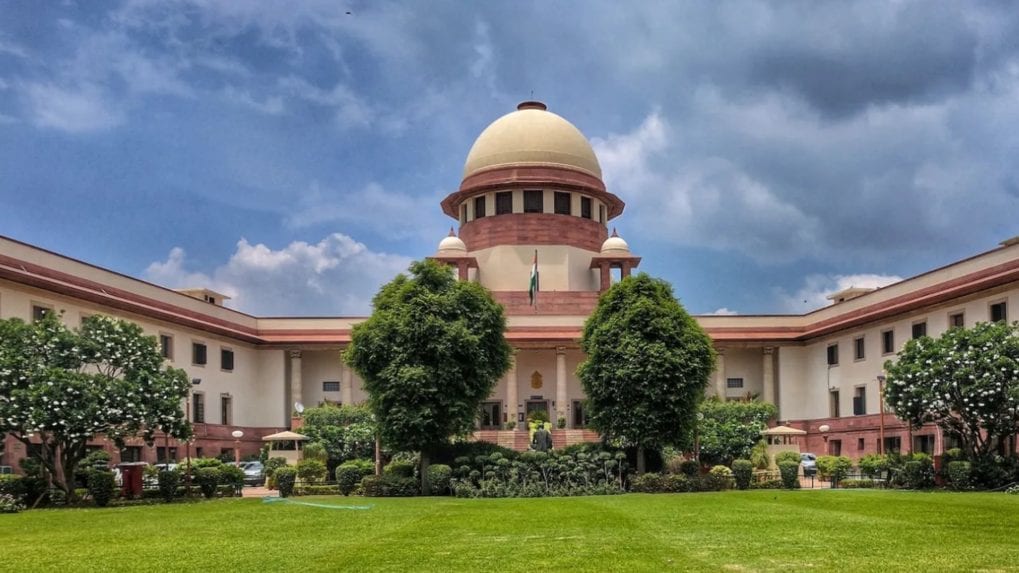Advertising
From Pink Slips to Silent Sidelining: Inside adland’s layoff and anxiety crisis

In what could be a watershed moment for India’s online real money gaming (RMG) industry, the Supreme Court has set August 8, 2025, as the final hearing date in a high-stakes case concerning the applicability of Goods and Services Tax (GST) on online games. The verdict is expected to bring clarity to a massive ₹2.5 lakh crore tax dispute, one of the largest in India’s legal history.
A division bench comprising Justices J.B. Pardiwala and R. Mahadevan will reserve judgment after concluding arguments in the batch of cases involving leading gaming companies, including Gameskraft, Delta Corp, and members of industry bodies like the All India Gaming Federation (AIGF), E-Gaming Federation (EGF) and the Federation of Indian Fantasy Sports (FIFS).
Government of India represented by ASG N Venkataraman will rest his case today. Senior counsels Harish Salve, Dr. Abhishek Manu Singhvi, Gopal Sankaranarayanan among others to get 15-20 minutes of time for rejoinder on the last day.
It should be noted that the ongoing case also involves validity of state bans in Karnataka and Tamil Nadu on online gaming companies. This issue will have broader impact as if the activity of gaming firms translates into gambling and betting which could lead to further ripple effect triggering law enforcement agencies and regulatory bodies.
Earlier, Justice Pardiwala had announced July 25 to be the final date, but after pleas from senior counsels, the hearing was extended.
The core of the dispute lies in the government’s interpretation of Rule 31A of the CGST Rules, which mandates a 28% GST on the face value of each bet placed in online games. The Revenue argues that this rule applies to all real money gaming transactions, treating the entire stake amount as taxable under Section 15(1) of the CGST Act.
In contrast, gaming companies argue that the rule is only applicable to gambling and betting activities, not to games of skill such as rummy, poker, and fantasy sports. They claim that their platforms merely facilitate gameplay and do not supply any "actionable claims" that can be taxed as goods under GST law.
The week saw the culmination of intense legal arguments presented by some of India’s top legal minds. Additional Solicitor General (ASG) N. Venkataraman, representing the Centre, argued that the stake amount constitutes the full consideration for the "supply" of actionable claims in games of chance, which are deemed goods under the law. He asserted that taxation on the entire bet amount satisfies all four canons of taxation—charge, person, rate, and value.
On the other hand, senior advocates Harish Salve, Arvind Datar, Gopal Shankarnarayan, and Abhishek Manu Singhvi argued that Rule 31A represents a “colourable exercise of legislative power.” Salve invoked the Supreme Court’s 2006 Sunrise Associates judgment, asserting that no actionable claim arises from a game of skill, and thus GST should only apply to platform fees or commissions—not the entire stake.
Salve also raised constitutional concerns, stating that taxing skill-based games as betting or gambling undermines the intent of the 101st Constitutional Amendment, which removed state authority to tax such activities.
The outcome of the case is likely to have far-reaching implications for the rapidly growing RMG sector, which has seen a surge in user base and investor interest in recent years. The imposition of a 28% GST on gross stake value has already rattled the industry, leading to operational challenges and investor caution.
A verdict favoring gaming companies could reinforce the legal distinction between games of skill and chance, potentially restoring investor confidence and shaping future regulatory frameworks. Conversely, a decision upholding the Centre’s tax interpretation may further strain the sector, especially startups and mid-size platforms.
The apex court has set a deadline of 4 PM on Friday for the submission of all arguments, after which it will reserve judgment.
As the industry holds its breath, August 8 may well be remembered as a pivotal day for India’s digital gaming future.
From purpose-driven work and narrative-rich brand films to AI-enabled ideas and creator-led collaborations, the awards reflect the full spectrum of modern creativity.
Read MoreLooking ahead to the close of 2025 and into 2026, Sorrell sees technology platforms as the clear winners. He described them as “nation states in their own right”, with market capitalisations that exceed the GDPs of many countries.